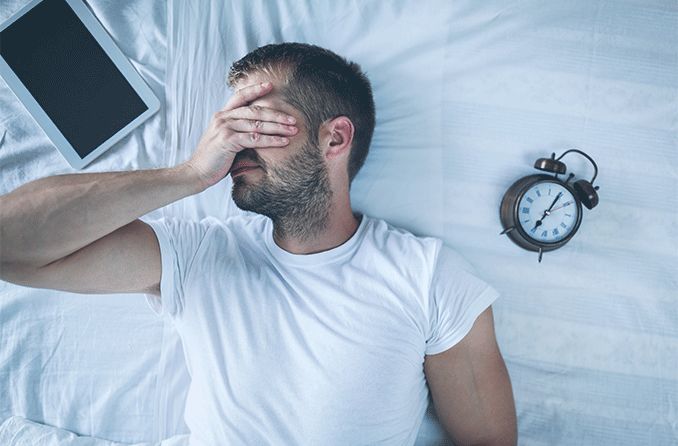Is Poor Sleep are you feeling down in the dumps lately? Anxious or stressed for no apparent reason? Well, it might not just be the day to day grind getting to you. Turns out, your sleep habits could be playing a major role in your mental well-being. A recent study delved into five decades’ worth of research, and the results are eye-opening. It seems that not getting enough shut-eye or having restless nights can seriously mess with your mood and mental health. Let’s break it down.
The Sleep-Mood Connection
Ever noticed how you feel like a grumpy bear emerging from hibernation after a night of tossing and turning? There’s a good reason for that. The relationship between sleep and mood is like peanut butter and jelly – they just go hand in hand. When you’re well-rested, the world seems a little brighter, and you’re better equipped to tackle whatever life throws your way. But skimping on sleep? That’s a recipe for disaster.
The Research Speaks
Scientists have been digging into this connection for half a century, and the evidence is clear: poor sleep equals poor mood. The latest study pooled together findings from a boatload of research papers, giving us a comprehensive look at how our sleep habits impact our mental health. And let’s just say, the results aren’t pretty.
Sleep Deprivation The Silent Saboteur
You know those nights when you just can’t seem to catch a break? Maybe you’re tossing and turning, or perhaps you’re burning the midnight oil to meet a deadline. Whatever the case, skimping on sleep can wreak havoc on your emotional state. It’s like giving your brain a one-two punch of exhaustion and irritability. Not exactly a winning combo.
Anxiety The Unwanted Bedfellow
Picture this: it’s 3 a.m., and you’re wide awake, your mind racing a mile a minute. Sound familiar? Yep, insomnia and anxiety often go hand in hand. And it’s no wonder – when you’re running on empty, every little worry seems magnified. It’s like your brain hits the panic button, sending you spiraling into a cycle of stress and sleeplessness.
Depression A Dark Shadow
Ever feel like crawling back under the covers and never emerging? Depression can turn even the sunniest day into a gloomy haze. And you guessed it – poor sleep only fans the flames. It’s a vicious cycle: you’re feeling low, so you can’t sleep, which makes you feel even lower. Rinse and repeat.
The Light at the End of the Tunnel

But fear not, weary traveler. There’s hope on the horizon. By prioritizing your sleep and adopting healthy bedtime habits, you can turn the tide on your mood and mental health. It’s all about giving your body the rest it needs to recharge and rejuvenate.
Tips for a Better Night’s Sleep
So, how can you ensure you’re getting the Z’s you need? Here are a few tips to help you on your journey to dreamland:
- Stick to a Schedule: Go to bed and wake up at the same time every day – yes, even on weekends. Your body loves routine.
- Create a Sleep Sanctuary: Make your bedroom a haven for rest. Keep it cool, dark, and quiet, and banish any screens at least an hour before bedtime.
- Watch What You Eat (and Drink): Avoid caffeine and heavy meals close to bedtime, and limit your alcohol intake. Your body will thank you.
- Move Your Body: Regular exercise can work wonders for your sleep quality. Just aim to wrap up your workout a few hours before hitting the hay.
- Practice Relaxation Techniques: Whether it’s deep breathing, meditation, or a warm bath, find what helps you unwind and make it a nightly ritual.
Final Thoughts
Your mental health is nothing to mess around with, and neither is your sleep. By making a few simple changes to your bedtime routine, you can banish those sleepless nights and reclaim your mood health. So tonight, why not tuck yourself in a little earlier and give yourself the gift of sweet dreams? Your mind will thank you for it.
